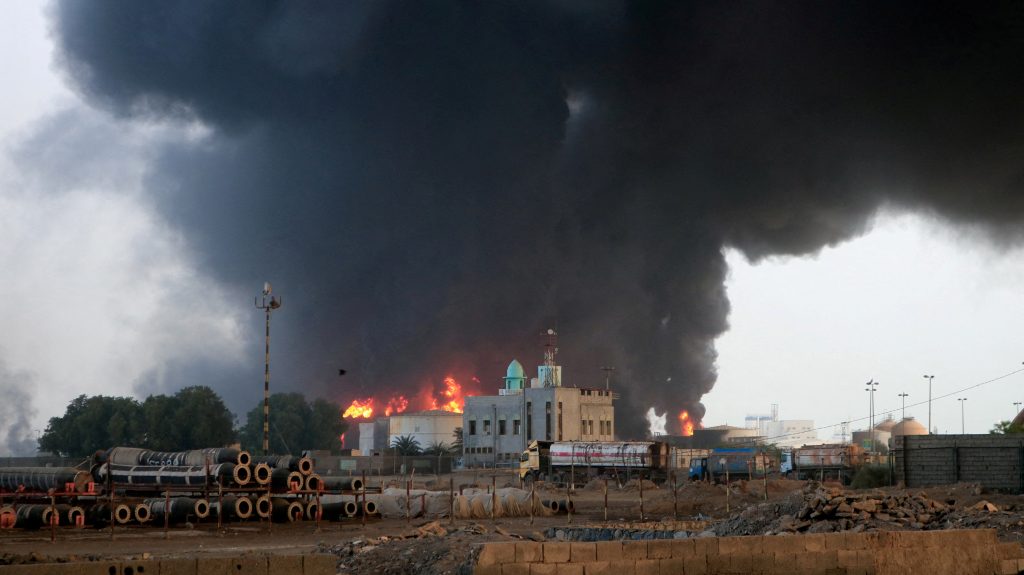On Sunday, Houthi leader Abdul-Malik al-Houthi said Yemenis were “pleased to be in a direct confrontation” with Israel and vowed to hit back hard at the Israeli bombing of Yemen’s Red Sea port of Hodeidah.
“Yemeni people are pleased to be in direct confrontation with the Israeli enemy, and they are steadfast and brave people,” al-Houthi said, according to Iran’s Press TV.
Israel bombed fuel depots in Hodeidah on Saturday following the Houthi drone attack on Tel Aviv that killed one person. Yemeni health authorities said the Israeli strikes killed at least six people and wounded 83, many with severe burns, as the attack caused a massive fire.
Al-Houthi said that Israel’s attack “was aimed at Yemen’s economy” since the port of Hodeidah is a vital entry point for fuel and humanitarian aid. Since 2015, Yemen has been under a US-backed Saudi blockade, which has been eased but not fully lifted.

Al-Houthi noted that the US and British bombing campaign in Yemen had done nothing to deter Houthi attacks on Israel-linked and other commercial shipping in the Red Sea, the Gulf of Aden, and beyond. The Houthis, officially known as Ansar Allah, have made clear they would only end their attacks if Israel’s genocidal siege on Gaza came to an end.
Also on Sunday, the Houthi military spokesman Yahya Sarea said Yemen’s “response to the Israeli aggression against our country is inevitably coming and will be huge.”
Israeli officials said a missile fired from Yemen toward the Israeli port of Eilat had been intercepted. Over the past nine months, the Houthis have fired hundreds of drones and missiles toward Israel, but most were intercepted by US warships in the Red Sea.
The attack on Tel Aviv was notable since it was a longer range than other attacks. Israeli officials said it traveled through Egypt and targeted Tel Aviv from the Mediterranean Sea.
The Israeli airstrikes on Yemen were also a first. Initial reports said the attack was supported by the US and the UK, but the Israeli military insisted it carried out the strike on its own.
Israeli media has portrayed the attack as a major victory for Israel since it struck targets that were further away than the Iranian capital of Tehran. But the Houthis are expected to be emboldened by the strikes, as they were by the US-UK bombing campaign, and will likely escalate attacks on Israel.
The US-backed Saudi/UAE war against the Houthis from 2015-2022 involved heavy airstrikes and a blockade, and the Houthis only became a more capable fighting force during that time.
The war killed at least 377,000 people, with more than half dying of starvation and disease caused by the siege. A ceasefire between the Houthis and Saudis has held relatively well since April 2022, but new US sanctions are now blocking the implementation of a lasting peace deal.


